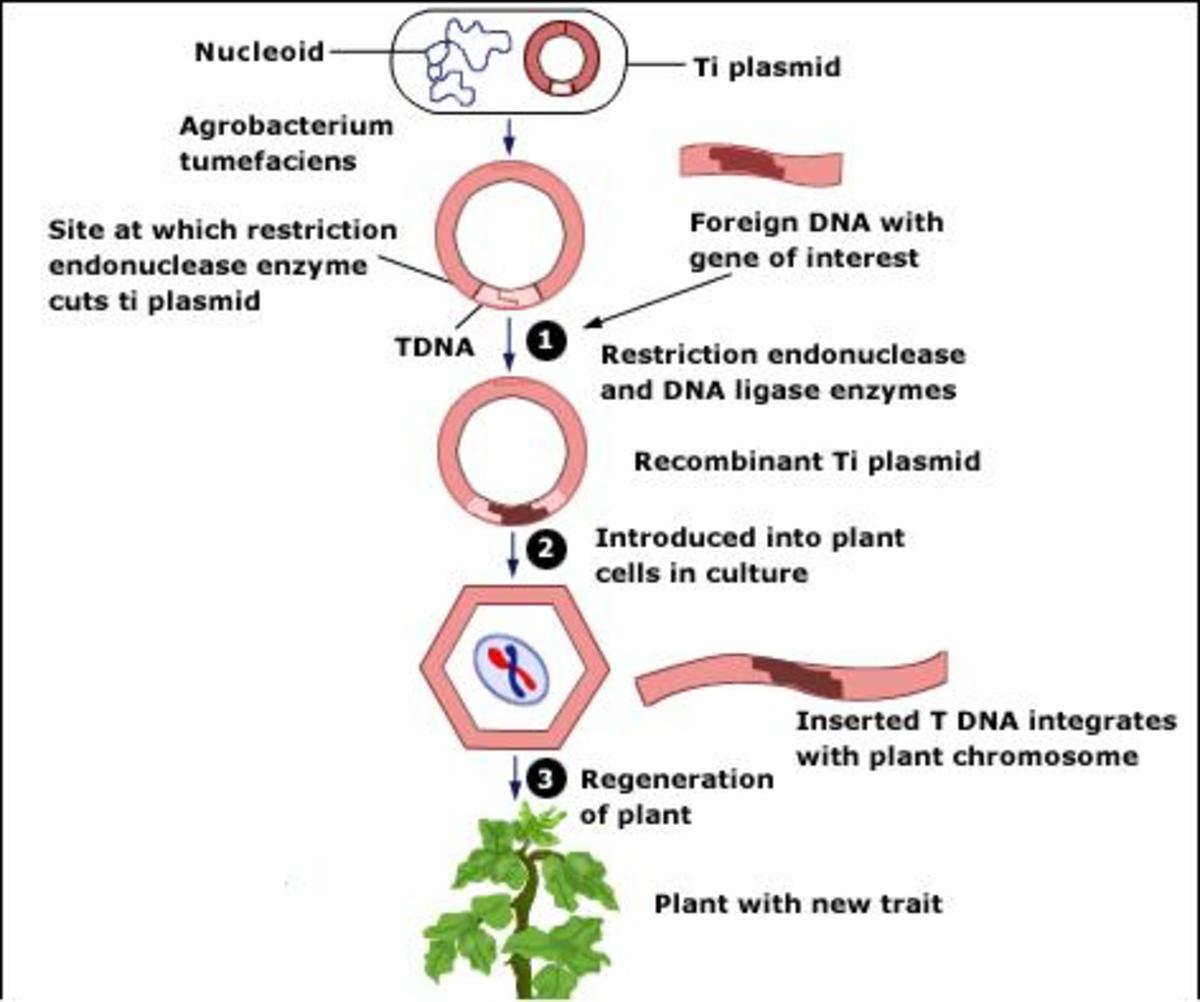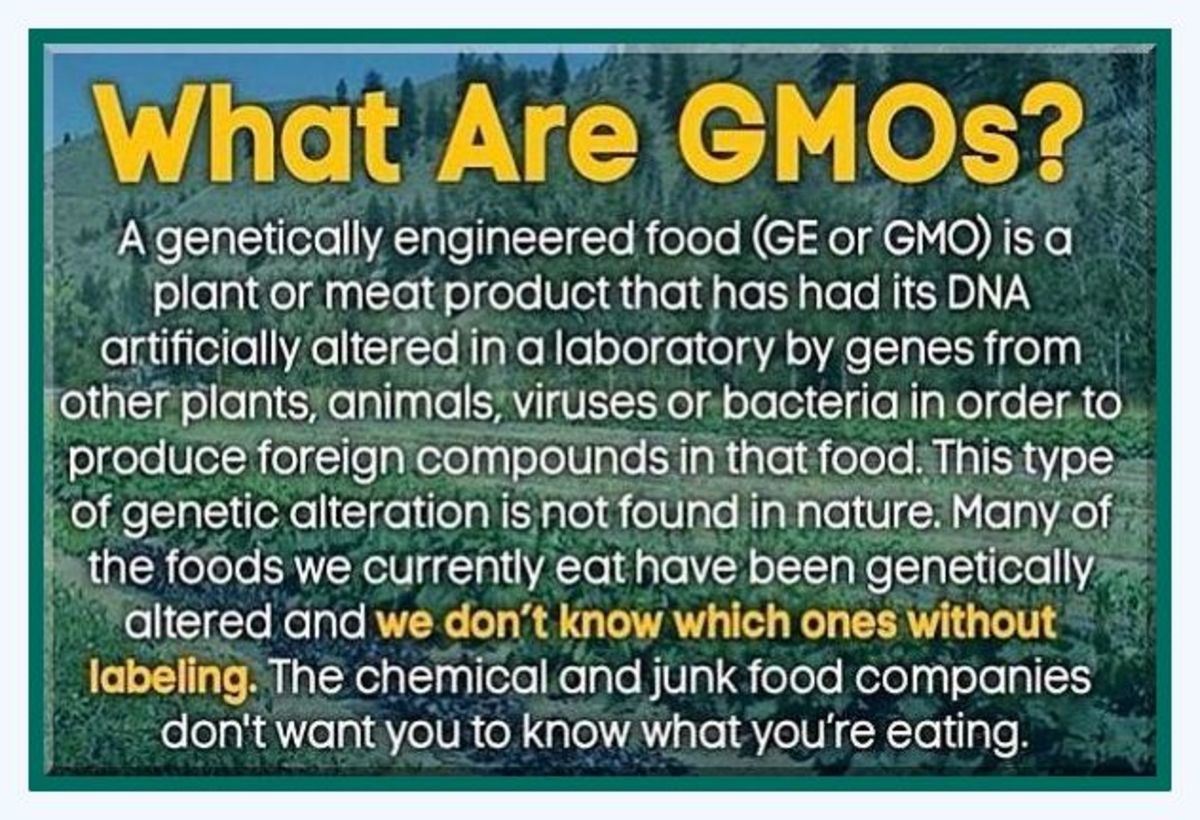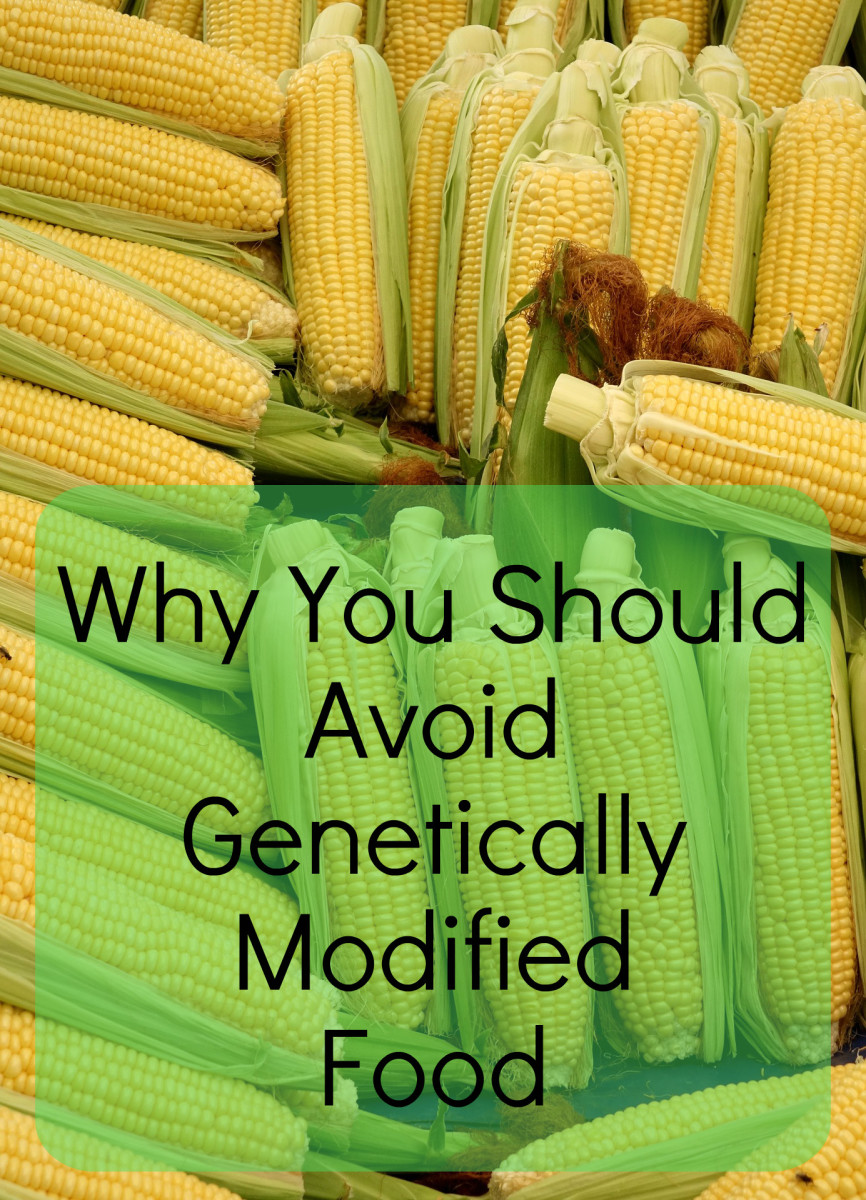Will You Eat GMO Salmon?
Is "Frankenfish" safe for humans to eat?
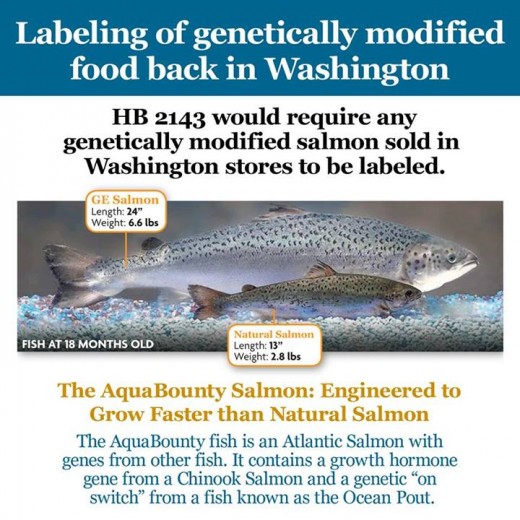
Labeling Washington state's salmon could mean a step in the right direction for all foods
Published January 28, 2014 by Mary McShane
This week, all eyes are on Olympia, Washington in the United States because of House of Representatives Bill #2143, which would require putting GMO (Genetically Modified Organisms and Foods) labels on any genetically engineered salmon for sale.
Salmon is big business in the state of Washington; the residents take it very seriously.
Their salmon industry already specifies the labeling of their salmon as farm and fresh-caught. But they want to go a step further to include "GMO" on the labeling of all salmon because of companies like AquaBounty Technologies, based in Massachusetts, who produce what some residents call "frankenfish," a genetically modified salmon registered under the brand name AquAdvantage Salmon.
The GMO labeling problem is making its way from state to state. It is now at their doorstep.
Taking into account past experience in other states, they are in for the fight of their lives.
Here's why.
Canadian lawsuits GMO salmon
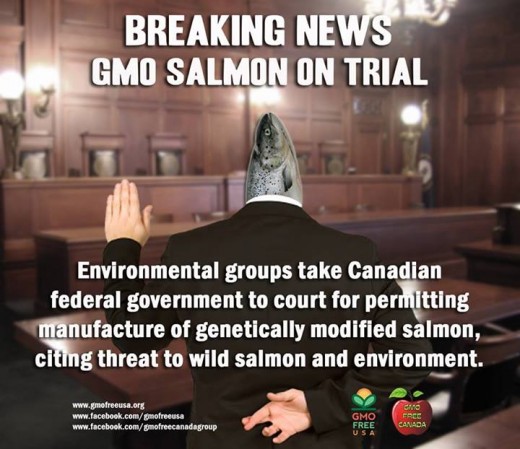
Does knowing about GMO's affect your buying habits?
Does knowing a certain food is genetically modified influence your buying choices?
The Wrath of a Large Corporation
If your cause has touched the nerve of a large corporation who stands to lose not only a large amount of profits, but also valuable reputation, then your cause doesn't stand a chance.
On the back end of the champions of your cause, you will be faced with corporations who are sometimes more influential in numbers and member pedigrees, not to mention richer no matter how much "support" you have raised, who will continue to work against you to shoot down your cause because it works against their best interests. Your Bill can sit in the legislature for years. It is a vicious circle.
Background: Before It Became House Bill 2143
On January 24, 2014, in Olympia, Washington, Republican Representative Cary Condotta, from East Wenatchee, who is sponsoring House Bill 2143 said: "We label farmed vs. fresh caught (fish). Why wouldn't we label transgenic fish? It just makes sense."
His bill would also make it illegal for any genetically engineered fish with fins to be produced in Washington state's waters.
Getting laws to be considered in legislature is a circus atmosphere because there are so many actors in the game.
- You and your group - who are "for" your cause and asked for initial Proposition.
- Several Primary Special Interest Groups - who have multiple actors for both sides of the cause
- Several Secondary Special Interest Groups - who have multiple actors with vested interests in the success and failure of the Primary special interest groups
- Big Corporations - who usually have clandestine reasons or ulterior motives why the cause should or should not be approved
- Lobbyists - people who "schmooze" other special interest groups and lawmakers to steer results to their own special interest groups
- Voters
- Senators and Members of Congress
Definition of Support = promoting your cause by word of mouth to "sway" people to agree to your side of the cause, by schmoozing lawmakers to champion your cause, by media advertising blitzes (the more finger pointing while providing embarrassing proof, the better), by personal appearances at public and private events, and by soliciting monetary contributions to your cause.
- First, your idea starts with a written Initiative which is assigned a number. From this stage, it helps to have a member of Congress in your pocket to champion your cause. Then, you hope, pray and work hard to "sway" people to your way of thinking to get "support" to move it to proposal stage. You do not know all the actors in the game yet, so you schmooze everyone.
- Second, having garnered sufficient support moves you to Proposition phase. The word "Initiative" is replaced by the word "Proposition." You now know your cause will be placed on the ballot for voters. You are also now aware who most of the actors are and who is your "enemy" from other factions because of the malicious advertising and smear campaigns you have endured. Up until the close of voting day, you hope, pray and work hard to get more "support" so that when people vote, they have been sufficiently "swayed" to vote your way on the ballot.
- Third, the Proposition votes are counted at close of polls. If voters agree, your Proposition has passed muster and moves up the ladder of government. If they do not agree, the Proposition fails.
But all is not lost. There is still a chance to "lobby" for your cause to the pocketed Senator or Congressional Representative whom you asked to champion your cause. At this point, they may write your cause up as a Bill with an assigned number to bring it before their respective legislative Houses. There is no timetable and the Bill can conceivably be in this stage for years, depending on public outcry and how quickly other states pass laws.
Source: The Stamford Times
Connecticut's legislation stipulates that GMO labels would be required on products in the state's supermarkets only after four other states bordering Connecticut enact similar rules.
It also requires that to enact their law, there must be a total population of more than 20 million people. (links to The Stamford Times)
In 2013, 95 bills related to the labeling of genetically modified food were introduced in 28 states, according to the National Conference of State Legislatures.
Some have failed and others are still pending, but few to the extent of Connecticut's law.
Connecticut State Senate President Donald Williams Jr. called on his fellow sponsors of federal legislation to "lead the charge" for mandatory labeling in their respective home states.
"If a handful of states with a significant population adopt the labeling legislation and requirement, then the companies will be forced to label on a national basis," he said.
The Consequences: GMO labeling on salmon
If this House Bill were to pass in Washington state, the consequences could open the door in the future for other states to pass laws compelling companies to label many more GMO products in our food supply.
The Center for Science in the Public Interest, a non-profit company, says that 70% of processed foods have at least one ingredient that comes from a GMO crop.
However, the Grocery Manufacturers Association brags the number is closer to 80%.
That's a lot of labeling.
As of this writing, only two states in the union "require" labeling for Genetically Modified Foods: Maine and Connecticut. But right now, their laws are not even worth the paper they are written on because the laws are not being honored.
The fine print says that their state laws won't be enforced until five nearby states pass similar labeling laws.
Imagine that!
If their neighbors say they will do it too, then it is okay for these two states to enforce GMO labeling laws. Even after they get all five neighboring states on board, there must be minimum 20 million people in that geographical area who will be affected by the GMO labeling. See section 2 on page 2 to read Maine's four page Act To Protect Maine Food Consumers’ Right To Know about Genetically Engineered Food.
That's a heck of a thing, for two states to pass the law but be dependent on five neighboring states to adopt their own laws first. No wonder getting anything done in government takes so long.
Video: Law Protecting Monsanto and GMO Salmon
GMO Salmon
Will you buy or eat genetically modified salmon?
The History of House Bills
Since 2012, more than 25 states still have House Bills waiting to be introduced by their state lawmakers to require companies to specify GMO ingredients on their labels.
You would think that with so many people hollering about GMO's that these proposed Bills would get enough support to pass.
But as proven with the voting outcome of Washington's Proposition 522 on ballots in November 2013, voters shot GMO labeling down by a margin of 51% to 49%.
With all the "support" for the various actors, the results suggest that it is not the squeaky wheel here who gets the most attention.
It's the guys with the most money. Take a look at the following figures.
Chart Showing Donations For NO On Proposition 522 Just Before 11/2013 National Election
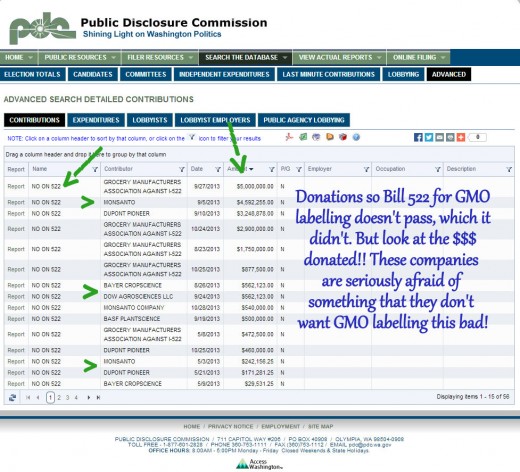
Show Me The Money
Some people wonder if how much a company donates to a controversial cause might be directly related to how much they have to hide.
The above chart filed by The Washington State Public Disclosure Commission details the contributions given to the organization "No On 522." It shows clearly in dollars and cents how far chemical companies, big food manufacturing companies and food distributors will go to shoot down any efforts leading to GMO labeling.
Clicking on the chart will blow it up larger for you to see the amounts total nearly $22 Million.
Notice the donations are primarily from chemical companies:
- Monsanto,
- Dow Agrosciences
- Bayer Cropscience (of Bayer aspirin fame, and once owned by Monsanto, now a major pesticide and herbicide supplier to Monsanto)
- BASF (owned by Monsanto) and
- Grocery Manufacturers Association Against I-522 - a conglomerate of GMO growers who do not support GMO labeling
It is in the best interests of all these contributors to not have any product labeled with GMO information because it will not only cut into their profits, but will leave them wide open to lawsuits from people who are now sick.
Proving they are sick because of GMO products will be a test of their fortitude, just as it was when the tobacco companies were sued.
Monsanto alone has cornered the GMO market with GM seeds which farmers must buy NEW each year for planting. They also have the market cornered with herbicide use on crops.
Up until last year, Monsanto would have to fight any lawsuits brought against them if GMO labels were to go on products.
However last year, Congress passed a "No Sue" law specifically for Monsanto. They cannot be sued for any perceived wrongdoing. It set a precedent because no other company has ever been afforded this luxury.
As a point of information, the first 4 contributors were also instrumental in supplying the US government's order for herbicides during the Vietnam War. The result was Agent Orange, provided by Dow Chemical Agrosciences for 1 year and by Monsanto Corporation for the remaining 9 years.
Frankenfish?
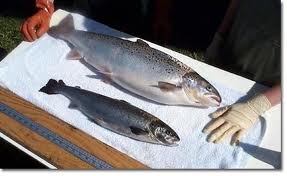
Did this hub influence your opinions?
Has this article changed the way you view GMO salmon?
There's hope for Washington state!

Genetically Modified Salmon
The fundraising citizens for "YES on 522" blamed the voter ballot failure of the Proposition on the amount of money raised by their rival "NO on 522." This was a record $22 million as shown above, while the other side "YES on 522" only raised $8.1 million (per printed news media).
If House Bill 2143 passes in the state of Washington, transgenic salmon (fast growing) will make Washington the first state to approve a genetically altered animal for human consumption.
Some lobbyists for the biotech companies, along with certain lobbyists for the Washington Fish Growers Association don't see the need for this bill at all. They are saying that Washington state laws already prohibit the use of transgenic fish. However, Washington's salmon producers want it in writing.
___________________________________________________________
There is concern that the genetically modified salmon will out-breed the natural salmon population if it ever were to escape and breed in the wild. There is no telling the cross breeding and genetic mutations that will occur should that happen, nor can it be controlled.
Massachusetts based AquaBounty Technologies, producers of AquAdvantage Salmon say their product, which critics call "frankenfish" is safe because it will be grown in a sterile environment to produce an all female population on land, not in the wild.
AquAdvantage's product started with an Atlantic salmon and inserted the growth gene of a Chinook salmon into its DNA. After that, they extracted a regulator protein from the Ocean Pout fish (eel family) and added it to the conconction, causing the salmon to always be in a state of growth. The company said it can grow twice as fast as natural salmon but “in all other respects” their brand is “identical to other Atlantic salmon.”
Critics say the fact that both fish are salmon is where the comparison stops. They do not understand how the company can say their salmon is identical to other Atlantic salmon, given that their salmon has a different genetic DNA and is injected with growth genes.
With Washington state's Proposition I-522 defeated by voters, it should also be mentioned that Proposition 37 in California regarding GMO labeling also failed. The success of biotech companies with voter opinion swaying their way sets the stage for more of the same in other states when they have this issue on their ballots in the future.
Because of failure with voters on Election Day, food companies and fish producers are now pressuring retail supermarkets and food outlets to not carry the GMO fish.
In April 2013, President Obama's administration gave preliminary approval to the fish, saying it is as safe to eat as any other salmon.
Judging from the pictures of laboratory rats with enormous tumors, only time will tell.
While Washington state residents await the outcome of House Bill 2143, the FDA does not give a timetable as to when a statement will be made regarding their assessment of genetically engineered salmon. There are over 25 other states who will confirm that a House Bill can take years.
© Mary McShane

© 2014 Mary McShane

